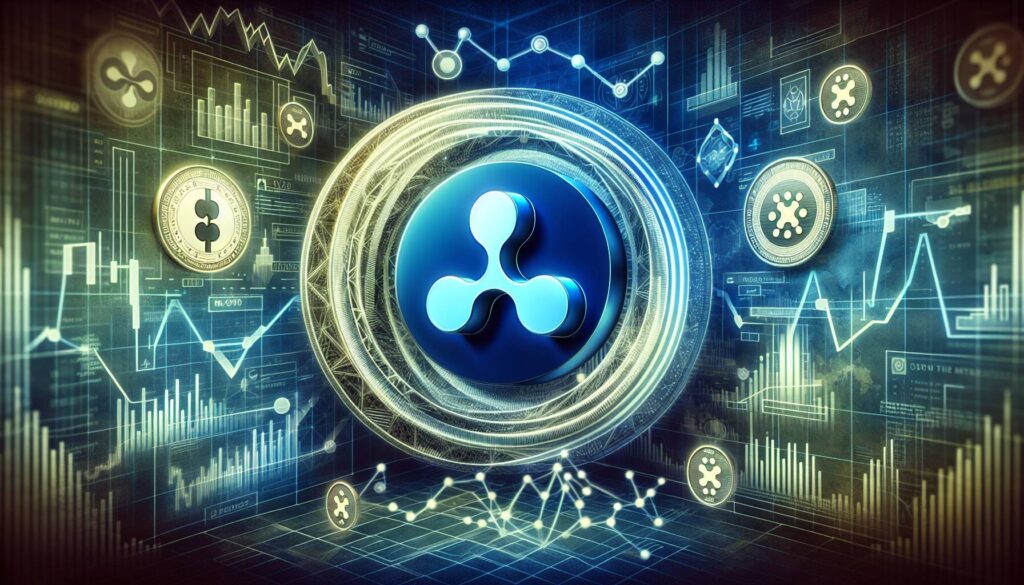In a significant move within the cryptocurrency landscape, global payments giant PayPal has announced an expansion of its digital asset offerings by adding Chainlink (LINK) and Solana (SOL) to its platform. Starting April 4, this update will allow users in the United States to buy, sell, and transfer these popular tokens. This expansion will also benefit users of Venmo, the mobile payment service owned by PayPal, further extending the company’s reach in the crypto space.
With approximately 83 million people using Venmo in 2023 and around 428 million total accounts globally, PayPal’s commitment to cryptocurrency is clearly substantial. The company has noted that all of its crypto services, including its new additions, are currently available only to U.S. residents. May Zabaneh, an executive within PayPal’s crypto division, highlighted the company’s response to growing consumer demand, suggesting that expanding the variety of tokens available provides users with increased flexibility and access.
“Offering more tokens on PayPal and Venmo provides users with greater flexibility, choice, and access to digital currencies,” said May Zabaneh.
This initiative marks a significant enhancement to PayPal’s existing crypto services, which now include seven digital assets, among them its own stablecoin, PayPal USD (PYUSD). The launch of PYUSD in 2023 signified the company’s bold entry into the cryptocurrency market, a move that has since seen the stablecoin surpass a market capitalization of $1 billion shortly after its introduction.
However, despite recent fluctuations in PYUSD’s circulation, which has decreased to around $760 million, its adoption underscores the potential for stablecoins in mainstream financial operations. In a recent application, PayPal demonstrated this utility by settling an invoice with Ernst & Young, showcasing the enterprise-friendly nature of stablecoin transactions.
Prominent voices in the industry, such as Polygon Labs CEO Marc Boiron, have acknowledged PayPal’s pivotal role in fostering stablecoin acceptance during a time of regulatory uncertainty. The ongoing evolution of PayPal’s offerings not only reflects the growing interest in digital currencies but also positions the company as a key player in the future of financial transactions.
PayPal Expands Cryptocurrency Offerings
PayPal has made notable advancements in its cryptocurrency services, introducing new assets and improving user experience. Here are the key points of this development:
- New Cryptocurrency Options:
- PayPal has expanded its offerings to include Chainlink (LINK) and Solana (SOL).
- US-based users can buy, sell, and transfer these popular tokens.
- Rollout Plans:
- Support for LINK and SOL will be implemented over the coming weeks.
- This rollout will also extend to Venmo, a PayPal-owned mobile payment platform.
- User Base:
- Approximately 83 million people used Venmo at least once in 2023.
- PayPal’s global reach includes roughly 428 million accounts, mostly in the US.
- Consumer Demand:
- PayPal’s expansion into cryptocurrencies is a response to increasing consumer interest.
- Offering more tokens provides users greater flexibility and access to digital assets.
- Existing Crypto Offerings:
- PayPal’s crypto services now include seven digital assets, including their stablecoin PayPal USD (PYUSD).
- Stablecoin Development:
- PYUSD’s launch established PayPal in the cryptocurrency market with a market capitalization surpassing $1 billion.
- PYUSD is designed to operate alongside traditional financial systems, aiming for broader acceptance in enterprises.
- Industry Impact:
- Companies like PayPal are credited with advancing the adoption of stablecoins amid regulatory uncertainty.
“Offering more tokens on PayPal and Venmo provides users with greater flexibility, choice, and access to digital currencies.” – May Zabaneh
PayPal Expands Cryptocurrency Offerings: A Competitive Edge in Digital Finance
PayPal’s recent expansion into cryptocurrencies by adding Chainlink (LINK) and Solana (SOL) to its offerings marks a significant step in its quest to dominate the digital payments landscape. This move is particularly appealing as it aligns with the escalating consumer interest in decentralized finance and digital assets, a trend observed across the financial technology sector. In a rapidly evolving market, PayPal is positioning itself as a major player, redefining user experiences with blockchain integration.
Competitive Advantages: One of PayPal’s standout features is its immense user base, boasting approximately 428 million global accounts. This creates a fertile ground for cryptocurrency adoption, especially in the U.S., where about 83 million people utilize Venmo, PayPal’s mobile payment platform. The seamless compatibility of cryptocurrency transactions with existing payment methods provides users with unparalleled flexibility. Moreover, by expanding its support for additional tokens, PayPal is giving its users more choices, enhancing its allure in a competitive digital payments environment.
Furthermore, the introduction of its stablecoin, PayPal USD (PYUSD), has already made waves in the market. Although its circulating supply has fluctuated, exceeding $1 billion in total market capitalization demonstrates PayPal’s commitment to establishing itself in this burgeoning sector. As the stablecoin market matures, the operational use cases like settling invoices with notable firms boost confidence in PYUSD and highlight its practical applications.
Challenges and Downsides: However, challenges loom on the horizon. While PayPal continues to expand its offerings, the cryptocurrency sector is rife with competitors such as Coinbase and Binance, which cater to more diverse international markets and are already established in the cryptosphere. Unlike PayPal, these competitors often provide a wider range of digital asset options and innovative trading features. This could potentially place PayPal at a disadvantage, especially among crypto enthusiasts who seek deep engagement with the digital currencies they trade.
The regulatory landscape also poses a hurdle. PayPal’s services are currently limited to U.S. residents, restricting its global reach in comparison to other platforms that readily facilitate international transactions. As regulators increase scrutiny over cryptocurrency and stablecoins, PayPal must navigate compliance effectively to avoid pitfalls that could harm its reputation and operational capabilities.
Potential Benefits and Concerns for Users: The latest offerings can significantly benefit users who are already accustomed to PayPal and Venmo’s user-friendly interfaces, enabling them to transition into cryptocurrency trading easily. However, for advanced crypto users seeking deeper functionalities and features, PayPal may not fully meet their expectations compared to specialized exchange platforms. Additionally, those concerned about privacy and security may view PayPal’s centralized approach as a drawback, considering the decentralized ethos underpinning cryptocurrency.
In summary, while PayPal’s expansion into the crypto space undoubtedly enhances its offerings and addresses customer demand, the challenges it faces from competitors and regulatory scrutiny cannot be ignored. The integration of these new assets into its platform is a step forward, yet its future success will hinge on how effectively it adapts to an ever-evolving market landscape.
















